
When Taylor Swift tells a story, you listen because you know it will be good—not only because she’s lived an exceptional life, but also because she’s a great storyteller. She got her heart broken, but not in the way you might anticipate.
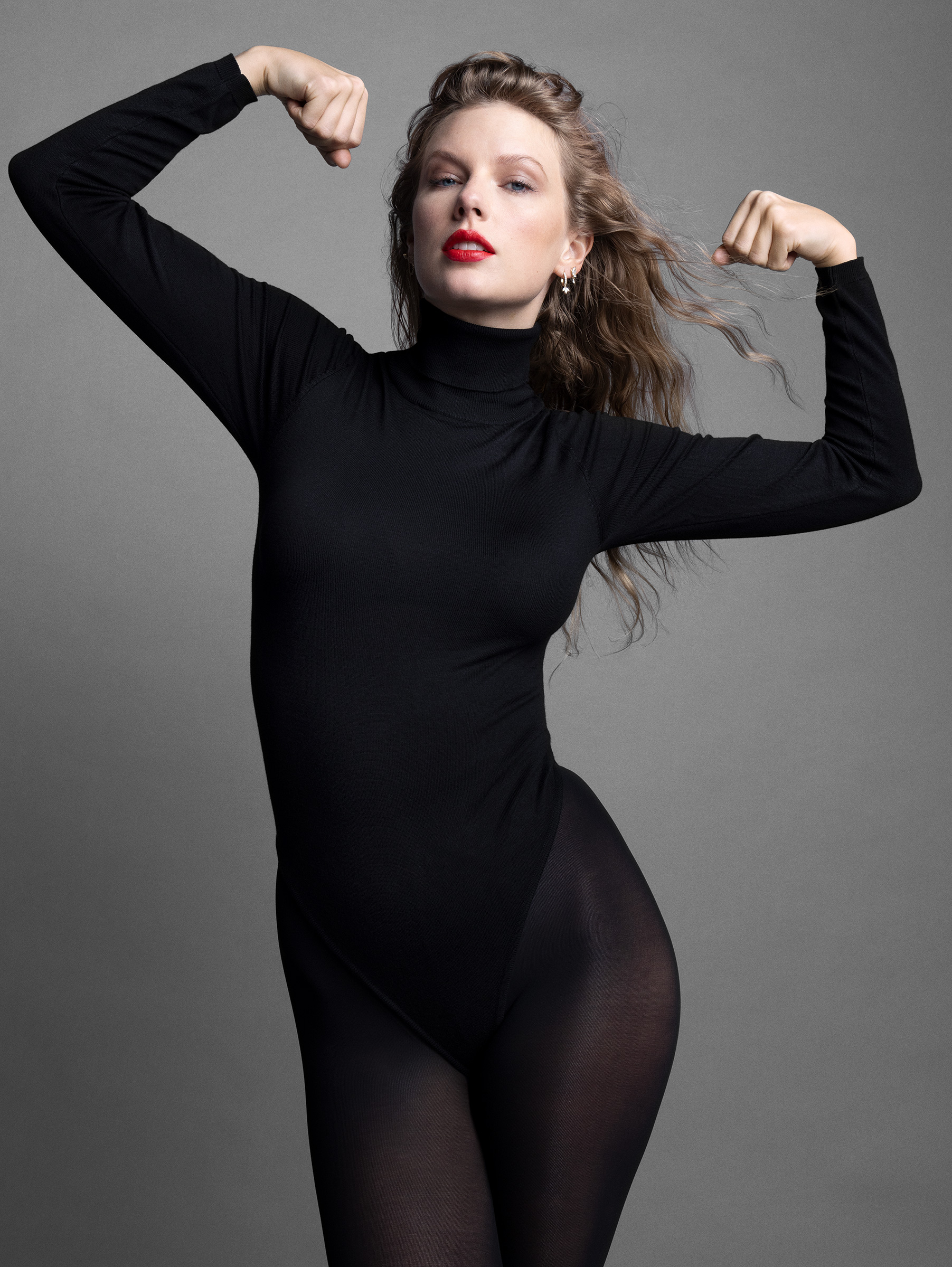
She booked her biggest opportunity—a highly desired gig opening for country superstar Kenny Chesney on tour—at 17. “This was going to change my career,” she recalls. “I was so excited.” Two weeks later, Swift found her mother Andrea on their front steps. “She was weeping,” Swift says. Andrea sobbed when she told her daughter that a beer business supported Chesney’s tour. Young Taylor couldn’t join. “I was devastated,” Swift adds.
But months later, Swift encountered Chesney’s promoter at her 18th birthday party. Swift recounts that Chesney gave her a check and a card saying, “I’m sorry that you couldn’t come on the tour, so I wanted to make it up to you.” “It was for more money than I’d ever seen in my life,” Swift says. I paid my band bonuses. I paid for tour buses. I fed my dreams.”
Swift tells this on a bright fall afternoon in her New York City apartment, and the story is fulfilling. The story starts with high stakes, vivid and sensory details, a twist that changes everything, and a joyful conclusion for the hero. Her 30-second recollection contains a whole narrative realm.
Not surprised. Swift is naturally good at finding stories. Swift’s redemption story is reflected in her Chesney story, where she finds happiness because of her trials. Swift took some hits to get here, as we’ll see. In a small den off the kitchen, she pulls off her shoes and curls up on the sofa. “I’ve been raised up and down the flagpole of public opinion so many times in the last 20 years,” she says. “I’ve been given a tiara, then had it taken away.” She speaks freely about her past and present. Though she’s been a global entertainer for years, this year is different. “It feels like the breakthrough moment of my career, happening at 33,” she says. “And for the first time in my life, I was mentally tough enough to take what comes with that.” Even though she’s so high it’s hard to think she was low.
Swift’s cultural, critical, and commercial achievements are so numerous that listing them seems pointless. In music, she ranks with Elvis Presley, Michael Jackson, and Madonna; in songwriting, she’s likened to Bob Dylan, Paul McCartney, and Joni Mitchell. Her corporate empire may be valued over $1 billion. Being a celebrity—who is scrutinized for everything from who she dates to what she wears—has given her continual attention, which she understands how to use. “I don’t give Taylor advice about being famous,” Stevie Nicks says. “She doesn’t need it.”) But this year changed. debating her movements was like debating politics or the weather—a universal language. She became the world’s protagonist.
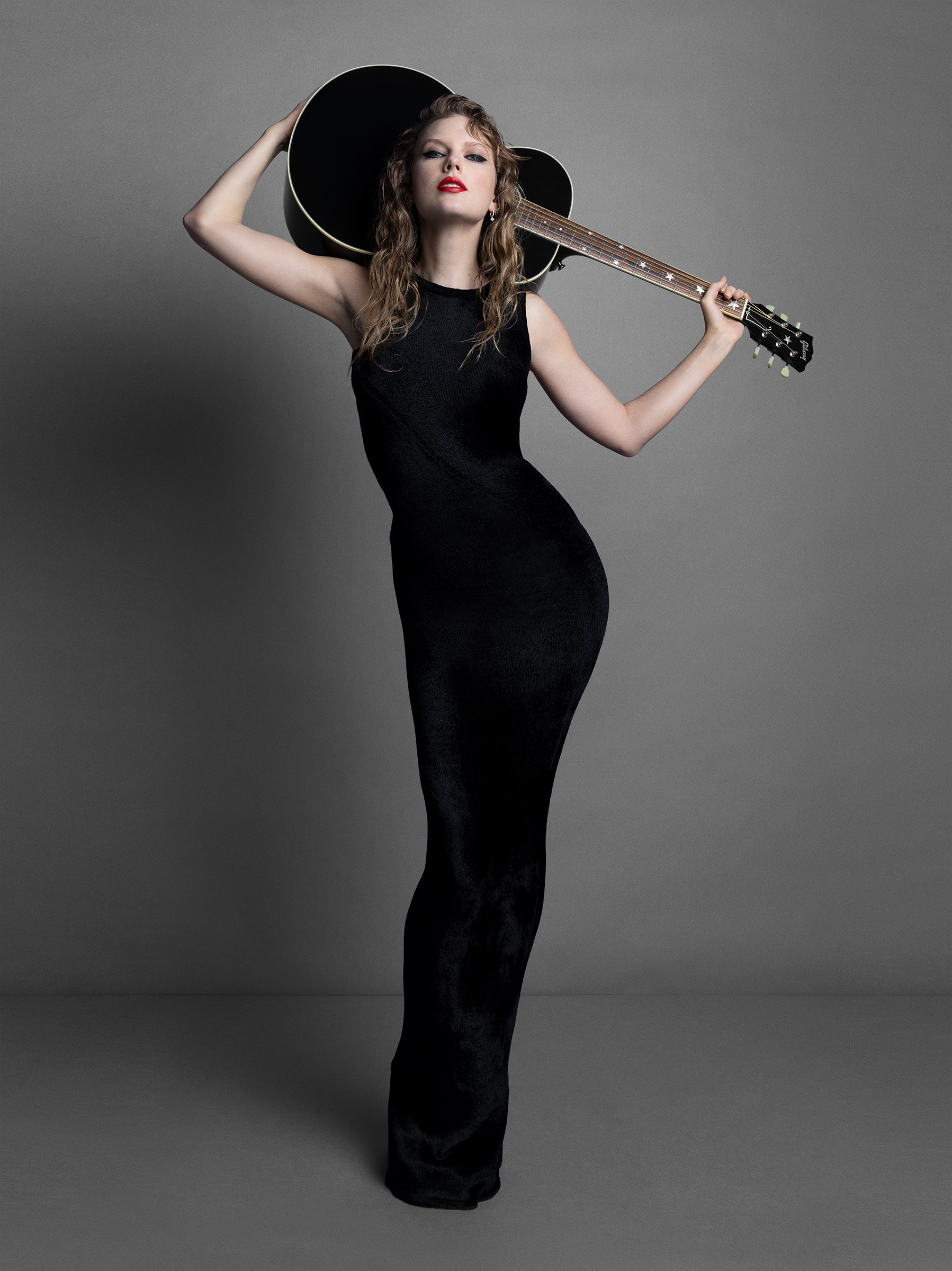
Consider how many Taylor Swift talks you had this year if you’re unconvinced. Many times did you view her photo on your phone while scrolling? Did you visit a city where she played? Do you have her concert film tickets? Did you double-tap an Instagram photo, giggle at a tweet, or click on her headline? Did you hum “Cruel Summer” in the grocery store line? Did a pal admit to watching Eras Tour video on TikTok all night? Or did you?
Analysts called her epic career-retrospective tour of her artistic “eras,” which played 66 dates across the Americas this year, the “Taylor effect,” as politicians from Thailand, Hungary, and Chile begged her to perform in their countries. It is expected to be the biggest and first to gross over a billion dollars. Stadiums, streets, and cities were named for her. Hotels and restaurants experienced a big boost in business whenever she visited a new place. Swift skipped studios and streamers to release her concert movie through AMC, which had its greatest single-day ticket sales ever. The Harvard lecturer, Stephanie Burt, tells TIME she plans to compare Swift’s writing to William Wordsworth in one of 10 classes on her. Her admirers traded friendship bracelets at concerts, and one song line might boost craft store sales by 500%. When Swift started dating Travis Kelce, the Kansas City Chief and two-time Super Bowl champion, his games gained tremendous viewership. She also made football even more popular. Her critically acclaimed songbook is so popular that she routinely breaks chart records when she rereleases it. Our stratified world has one monoculture left: her.
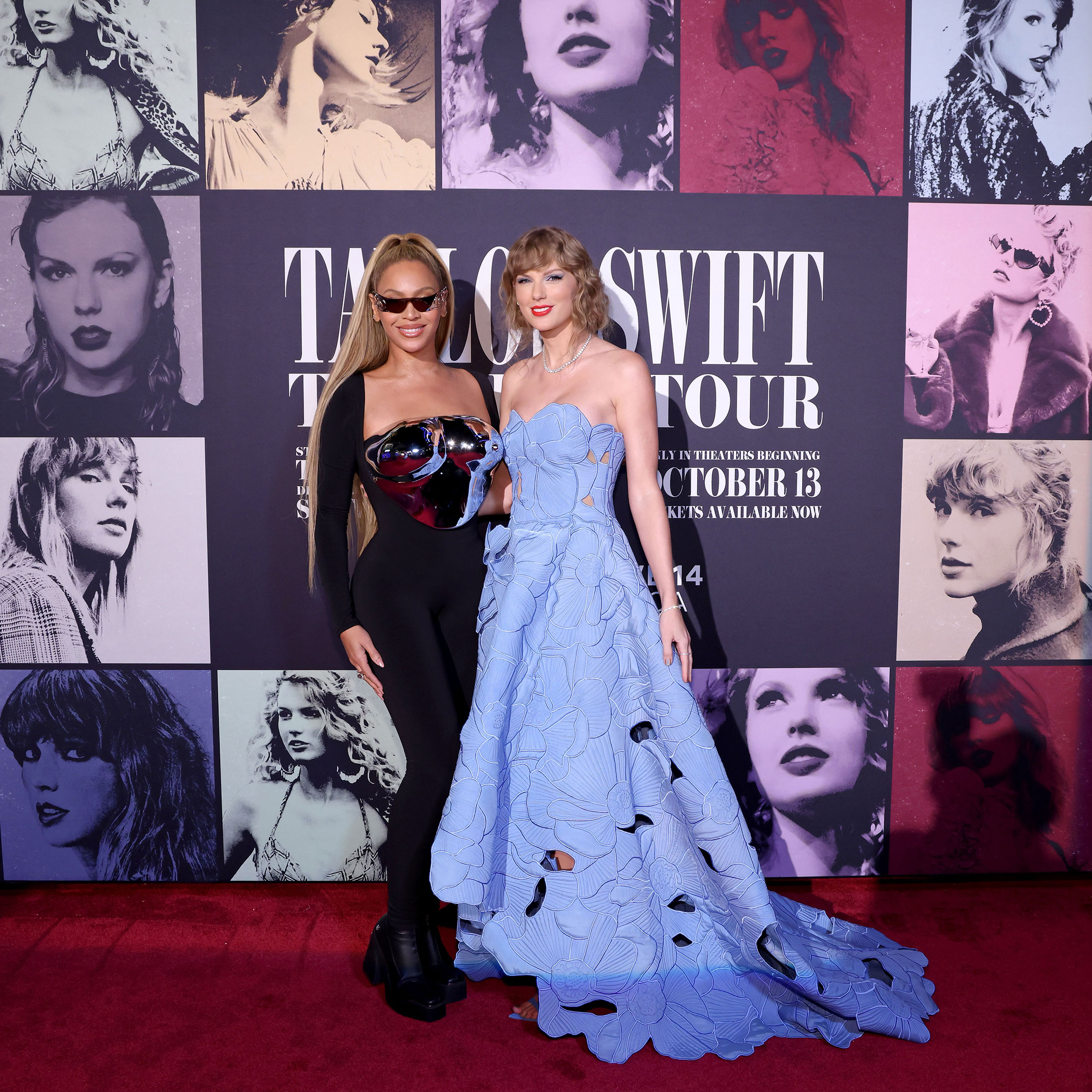
Being in the center of history makes it hard to see history, and Swift’s cultural impact is even harder to discern from her notoriety, which can blind you. Swift is doing something unprecedented. She tells her experience through pop music, the most effective media. Over time, she has used old and new media to build a unique narrative world in which her music is simply one piece of an interactive, shape-shifting story. Swift wrote, narrated, and designed the narrative.
This year she honed her craft—not only her music, but as the modern master storyteller. The world watched, clicked, sobbed, danced, sang, swooned, caravanned to stadiums and movie theaters, and let her work soundtrack their lives. This is Swift’s peak. “Ultimately, we can convolute it all we want, or try to overcomplicate it, but there’s only one question,” Swift says with a loud voice. “Not entertained?”
On a summer night in Santa Clara, Calif., currently known as Swiftie Clara, I am in a stadium with roughly 70,000 people enjoying a religious experience a few months before I sit with Swift in New York. Swift gazes out at us with joy, high on the same narcotic as the crowd. Her followers, both in person and online, are fanatical about finding clues, hints, and secret meanings in her choreography and costumes, some of which are intentional. One popular tweet called Taylor Swift fans “the modern-day equivalent of those cults who would consistently have inaccurate rapture predictions like once a month.”
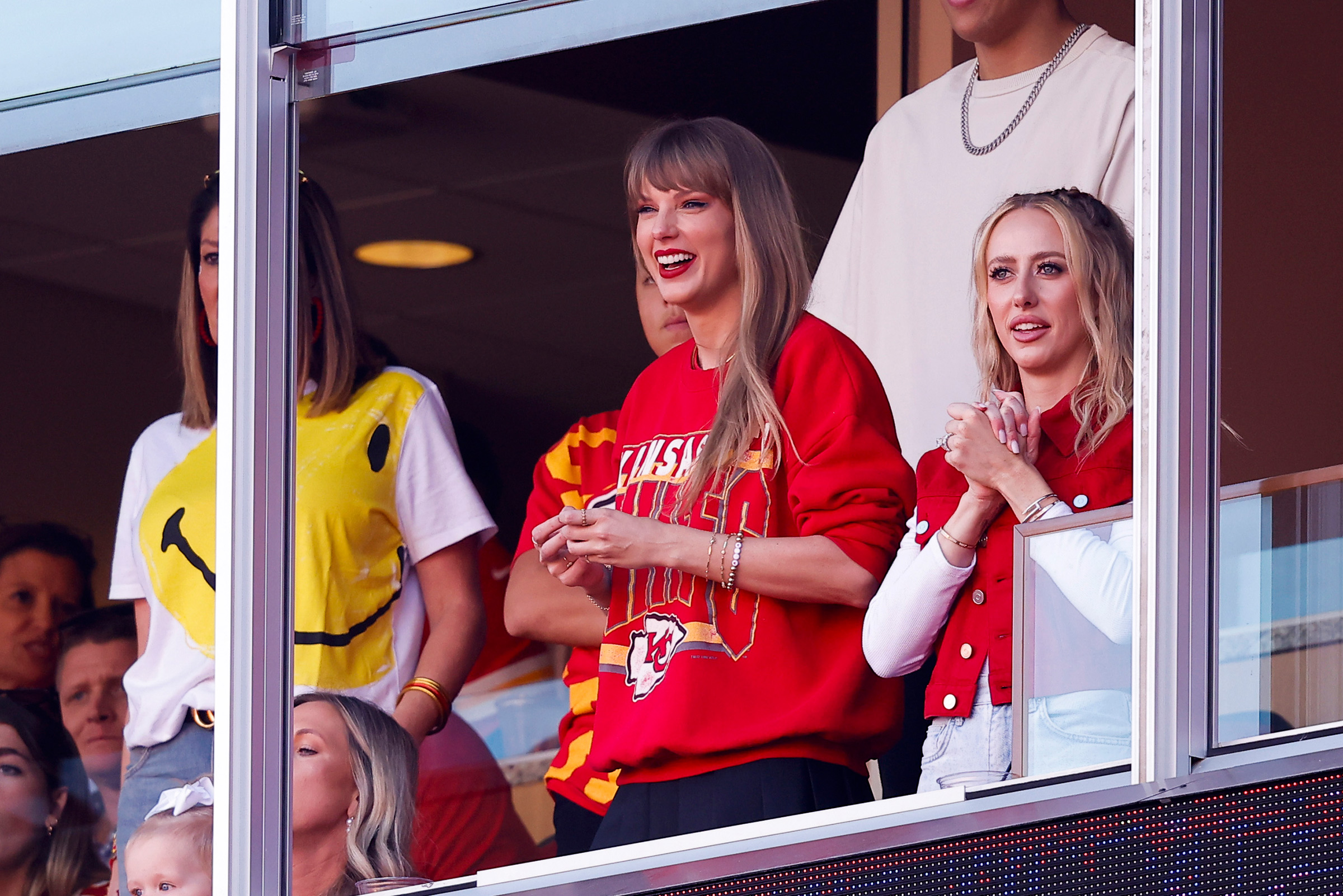
From the arena, it’s clear why this is the biggest thing in the world. “Beatlemania and Thriller have nothing on these shows,” adds Swift’s colleague Phoebe Bridgers. Argentina fans camped outside the venue for months to gain great spots, forsaking their jobs to fan. Across the U.S., many waited days to get in, while others “Taylor-gated” in surrounding parking lots to hear the boom. Ticketmaster crashed last year during ticket sales. Despite 4.1 million tickets sold for the 2023 concerts, including over 2 million on the first day, a record, scalpers raised secondary market prices to over $22,000. Many fans sued. A Justice Department inquiry began. Senate hearing. Swift had to perform given the stakes.
“I knew this tour was harder than anything I’d ever done before by a long shot,” Swift admits. Each show is 180 minutes long and features 40-plus songs from at least nine albums, 16 costume changes, pyrotechnics, an optical trick in which she appears to plunge into the stage and swim, and two cottagecore worlds with lots of moss.
Swift joked that she toured “like a frat guy.” This time, she trained six months before the first show. “I ran on the treadmill every day, singing the set list out loud,” she added. Her gym, Dogpound, designed a strength, conditioning, and weights program for her. “I had three months of dance training to get it in my bones,” she explains. I wanted to be so over-rehearsed that I could be silly with the fans, and not lose my train of thought.” She worked with choreographer Mandy Moore, recommended by her friend Emma Stone, who worked with Moore on La La Land, since “Learning choreography is not my strong suit.” She stopped drinking, except for Grammy night, which was “hilarious.” “Doing that show with a hangover,” she warns. Don’t want to know that world.
Swift boosted a city’s economy. Eras’ launch in Glendale, Arizona, produced more income for local businesses than the 2023 Super Bowl at the same stadium. Fans traveled nationwide, slept in hotels, ate out, and bought sweatshirts and limited-edition vinyl, spending roughly $1,300 on average. Swift said supporters have to work hard to get tickets, therefore she must repay them. I wanted to play a show longer than they anticipated it would be, since it makes me feel good leaving the stadium.” The “Taylor effect” was noticed at the highest levels of government. “When the Federal Reserve mentions you as the reason economic growth is up, that’s a big deal,” says Duke University finance professor Ed Tiryakian.
Having an economy on your back is daunting. After performing, Swift rests for a day. “I stay in bed except to get food and eat it there,” she explains. “A dream scenario. Three shows of singing have left me speechless. Maintaining her strength between shows with training is crucial. “I know I’m going on that stage whether I’m sick, injured, heartbroken, uncomfortable, or stressed,” she adds. “That’s part of my humanity now. If someone buys a ticket to my show, I’ll play it unless we have force majeure.” (A heat wave in Rio de Janeiro caused chaos during Swift’s November run when one fan, Ana Clara Benevides Machado, collapsed and died; Swift wrote on Instagram that she had a “shattered heart.” She rescheduled the next show due to unsafe conditions and spent time with her family at her final tour date in Brazil.)
Swift is sensitive, victorious, amusing, and heartbroken onstage, but her songcraft remains central. “Her work as a songwriter is what speaks most clearly to me,” says Greta Gerwig, whose feminist Barbie proved women can be anything. “To write music that is from the deepest part of herself and have it directly speak into the souls of other people.” As Swift skips through the eras, she embraces her old songs, like “You Belong With Me” and “22,” rather than updating them. She’s demonstrating extreme self-acceptance on the world’s largest stage, allowing the audience to rediscover their own joy or suffering. I told Swift the show reminded me of a meme that states, “Do not kill the part of you that is cringe—kill the part of you that cringes.” “Yes!She exclaims. “You worked out every component of yourself and every period of your life in that moment with the facts you had. I often think, ‘Wow, a couple years ago I might have shuddered at this.’ Celebrate who you are, where you’re going, and where you’ve been.
She says the tour’s success is a dramatic irony because she worked hard to reconcile with her past. Swift continues, “It’s not lost on me that the two great catalysts for this happening were two horrendous things that happened to me,” and the story turns. “The first was getting canceled within an inch of my life and sanity,” she stated. “The second was having someone who hates me take my life’s work.”
Swift shows me her favorite things in her apartment, including a Stevie Nicks Barbie provided to her by the artist, a Paul McCartney framed message in her bathroom, and tiles around the fireplace she found in Paris with her mother. She has a remarkable photo of her grandmother Marjorie, an opera singer who inspired a track on her album Evermore. Swift grew up on a Pennsylvania Christmas-tree farm with her younger brother Austin. Her father Scott was a Merrill Lynch stockbroker and Andrea worked in marketing. Today, her family works closely with her. Swift: “My dad, mom, and brother come up with some of the best ideas in my career. “I always joke that we’re a small family business.”
She joined Big Machine Records with Scott Borchetta after moving to Nashville as a teen. The first lyrics of Swift’s debut single, “Tim McGraw,” were literary: “He said the way my blue eyes shined put those Georgia stars to shame that night—I said, ‘That’s a lie.’” Even for country music, these lyrics conjure a romantic fantasy and then deflate it. Swift repeatedly praised and criticized the fairy-tale promise of love and intimacy in her songs, mindful of how narrative shaped her expectations. When Kanye West interrupted Swift’s 2009 VMAs acceptance speech, she was recognized as a talented pop-country ingenue. The incident set in motion circumstances that shaped both artists’ careers for the next decade.
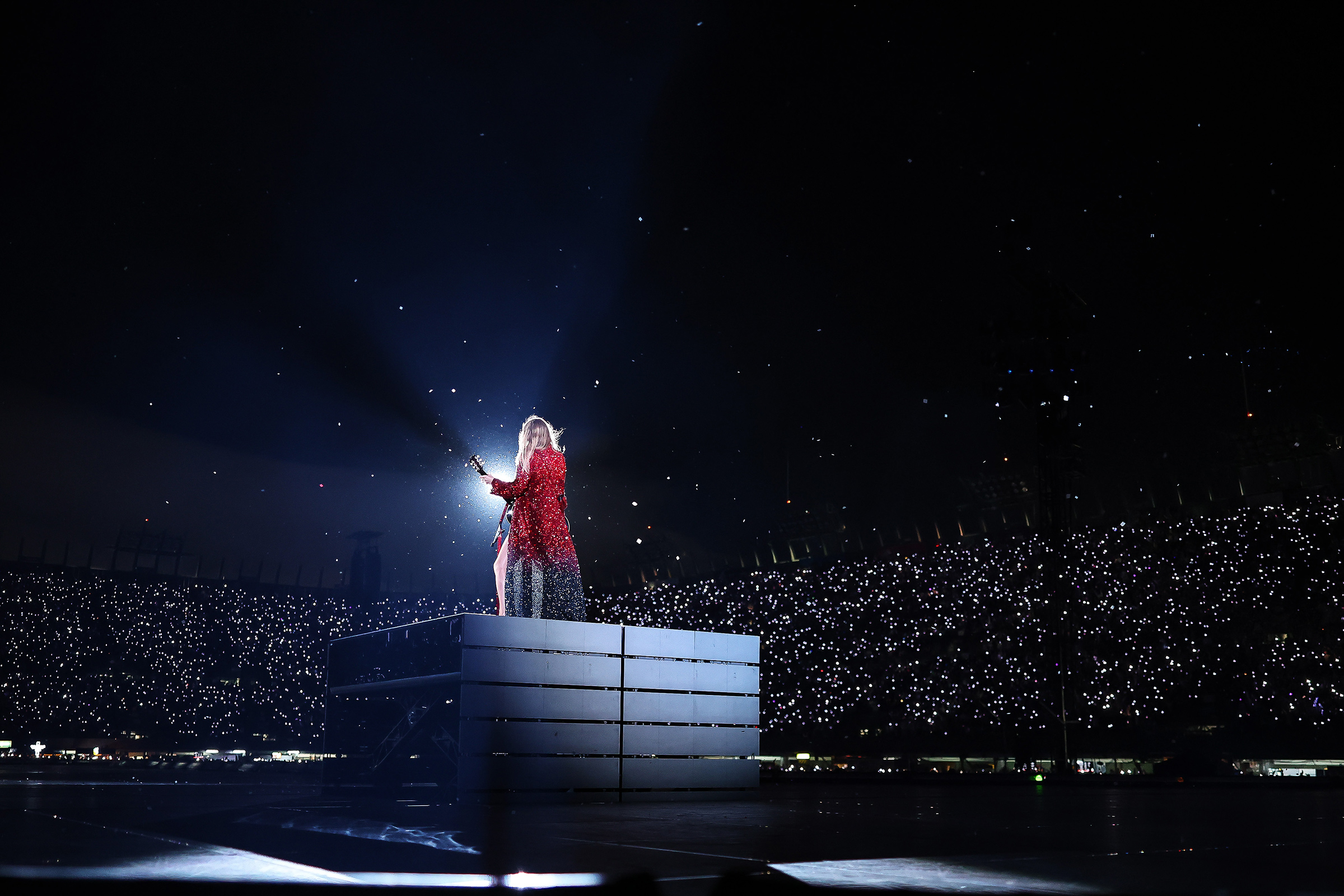
Swift recalls trying to shape-shift then. “I realized every record label was actively trying to replace me,” she adds. I figured I’d replace myself first. It’s tougher to hit a moving target.” Swift wrote songs solo, used diverse sonic influences, and gave fans more personal relationship clues in her lyrics and album materials. The 2012 epic ballad “All Too Well,” from Red, showcases Swift’s composer prowess, using discarded details like a scarf that returns at the song’s end to stab you in the heart. The liner notes also include a secret message. Rereleased last year, an extended version of the song struck No. 1 not only because it’s amazing but also because it has a lore, like Carly Simon’s “You’re So Vain” if it had an experience puzzle for fans to solve. “She’s like a whole room of writers as one person, with that voice and charisma,” Bridgers says. “She’s the whole package.”
Swift understood she had to innovate. “They throw you out at 29 usually when an artist is mature enough to psychologically handle the job,” she explains. “In the 1990s and 2000s, it seems like the music industry said, ‘OK, let’s throw a bunch of teenagers into a fire and watch what happens. For 2014’s 1989, she went full-throttle pop, putting her on top of the world—“an imperial phase,” she calls it. It didn’t dawn on her that it might extend her fall. Her perceived overexposure and political conspiracy theories sparked public outrage. “I had all the hyenas climb on and take their shots,” she recalls. West claimed that Swift had consented to his obscene song about her, but Swift disputed it. West’s then-wife, Kim Kardashian, released a video of a conversation between West and Swift that seemed to imply Swift’s consent. Tabloid catnip made Swift look like a snake, as others nicknamed her. She calls it “a career death.” “Make no mistake—my career was stolen.”
A dark moment. “You have a fully manufactured frame job, in an illegally recorded phone call, which Kim Kardashian edited and then put out to say I was a liar,” she says. “That depressed me like never before. I moved abroad. A year passed before I left a rental. I feared phone calls. Because I no longer trusted anyone, I avoided most individuals. In a 2020 social media post, Kardashian said the situation “forced me to defend him.” Swift’s 2017 album Reputation incorporated snake imagery, and the video for “Look What You Made Me Do” showed her killing younger versions of herself. Reputation brought outrage and distrust, she recalls. “I thought that moment of backlash was going to define me negatively for the rest of my life,” she adds. She had fulfilled her Borchetta album agreement and wanted out. “The molecular chemistry of that old label was that every creative choice I wanted to make was second-guessed,” she says. “I overthought these albums.”
She talked to Universal Music Group CEO Lucian Grainge and Republic Records CEO Monte Lipman about an agreement that would offer her more agency. As I sit with him in his Los Angeles office, Grainge characterizes himself as a “old punk” who relies on instinct rather than numbers. He stated, “We will utilize everything that we’ve got as a company for you.” Swift felt like she had free rein: “Lucian and Monte basically said to me, ‘Whatever you turn in, we will be proud to put out. When it counted, she needed to hear, “We give you 100% creative freedom and trust.”
However, Swift’s first album with Republic, 2019’s Lover, coincided with her second major career change: Borchetta sold Big Machine and Swift’s catalog, valued at $140 million, to Ithaca Holdings, owned by West’s former manager Scooter Braun. “With the Scooter thing, my masters were being sold to someone who actively wanted them for nefarious reasons,” Swift believes. The agreement gave Braun the rights to Swift’s first six albums, meaning he would profit whenever someone licensed a song from them (“It makes me sad that Taylor had that reaction to the deal,” Braun told Variety in 2021). Swift rallied her supporters against the agreement but felt powerless. “I was so knocked on my ass by the sale of my music, and to whom,” she says. I thought, ‘Oh, they got me beat now. Finished. She returned to work, using the pandemic lockdown to pare back her sound on folklore and evermore, both critically lauded.
Around the same time, she considered rerecording her earlier albums to reclaim control. “I’d run into Kelly Clarkson and she’d go, ‘Just redo it,’” Swift says. My dad repeated it to me. I looked at them and thought, “How can I do that?”Swift may rerecord her songs because she wrote them and owned the musical composition copyright. When she joined Republic in 2018, she negotiated to own the master rights for her new and rerecorded tracks. (Major labels now make it harder for artists to rerecord.) She rerecorded her old albums as “(Taylor’s Version)” and included unreleased tracks to draw fans to them. She calls the strategy coping. “It’s all in how you deal with loss,” she explains. Defiance is my response to great pain.”
Only an artist like Grainge could pull off the “bizarrely brilliant and unique” rerecording effort. It has a narrative—there’s a reason.” He shakes his head. “Imagine Picasso painting something he painted a few years ago, then re-creating it with today’s colors.” Swift credits the label’s flexibility to follow her instincts for her success. “If you look at what I’ve put out since then, it’s more albums in the last few years than in the first 15 years of my career,” she says. Her success is due to her prolific productivity. “She could serve two terms as President of the United States and then go to Las Vegas,” Grainge said. “Who else can?””
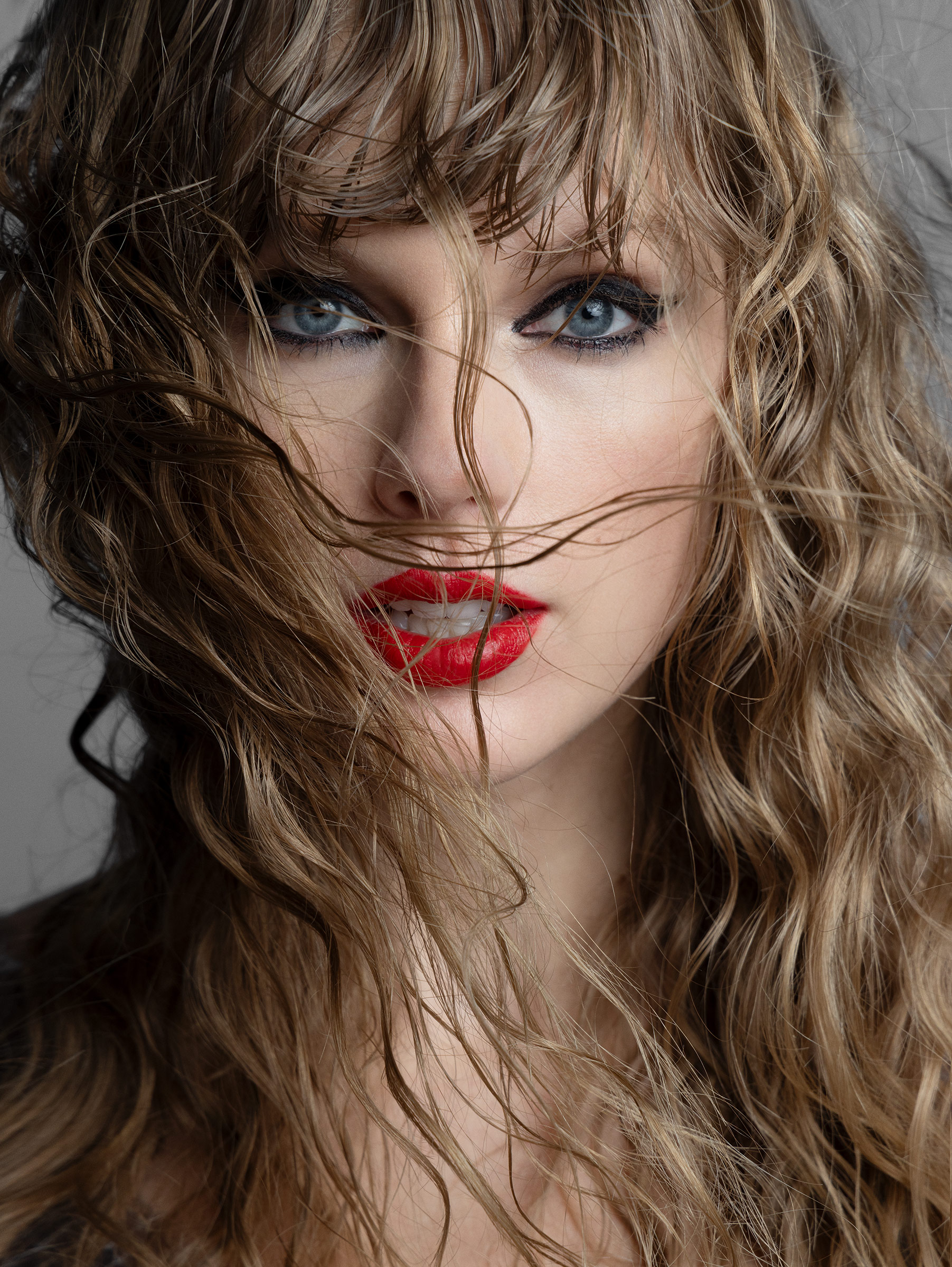
Swift’s rising this year looked to change her opponents’ fortunes. Many of Braun’s main clients, including Justin Bieber and Ariana Grande, left his company during the summer, and West’s racist and other ugly remarks cost him endorsement opportunities. Swift has experienced the fame seesaw. “Nothing is permanent,” she says. “I’m careful to be grateful every second that I get to do this at this level because I’ve lost it before. I’ve learned to keep making stuff regardless of what happens. Continue doing art.” She thinks. “But I’ve also learned there’s no point in actively trying to quote unquote defeat your enemies,” she continues. “Trash always takes itself out.”
Swift’s performance film premieres at the Grove, a Los Angeles outdoor mall closed for the occasion. Thousands of fans fill 13 screens. She thanks each theater’s grieving audience one by one. The film, released directly to theaters without a partner, is an event like the tour. “We met with all the studios and streamers, and we assessed how it was perceived and valued, and if they had high hopes and dreams for it,” she says. Her father inspired her to gamble on herself, which she does more and more. “He asked, “Why is there a middleman?””
As we wait for Swift, fans and Swift’s friends in the theater are excited. Two Swifties, sisters Madison, 23, and McCall, 20, are still recovering after their red carpet selfie with Swift to my left. Both say their favorite album is Reputation. Madison has a tattoo on her forearm that says “Taylor’s Version.” Their wrists are covered in friendship bracelets, some of which are deep cuts like no it’s BECKY, a reference to a beloved Tumblr meme, and BLEACHELLA STAN, for Swift’s 2016 platinum blond bob. They’re my favorite people, and I want to talk to them forever. Madison admires Swift for her vulnerability—“which is insane, when she’s under endless scrutiny”—while McCall deems her consistency “a lost art form.” McCall gracefully answers my inquiry concerning Swift’s romantic life. “It’s a disservice to her to focus on that stuff,” she says. “She’s great at connecting her personal experience to millions. I think of my experiences when I listen to her music, not hers.
This year, Swift divorced from her longtime partner, actor Joe Alwyn, sparking media coverage and inspiration for her work. Her recent dating of NFL player Travis Kelce is evident when she attends his games. “I don’t know how they know my suite,” she says. “There’s a camera, like, a half-mile away, and you don’t know where it is, and you have no idea when the camera is putting you in the broadcast, so I don’t know if I’m being shown 17 times or once.” She is sensitive to attention when she appears. “I’m just there to support Travis,” she says. “I have no idea if I’m being shown too much and offending some dads, Brads, and Chads.”
I note that Swifties watching benefits the NFL. “Football is awesome, it turns out,” Swift jokes. “I’ve been missing out my whole life.” (Her October game was the most-watched Sunday show since the Super Bowl.)
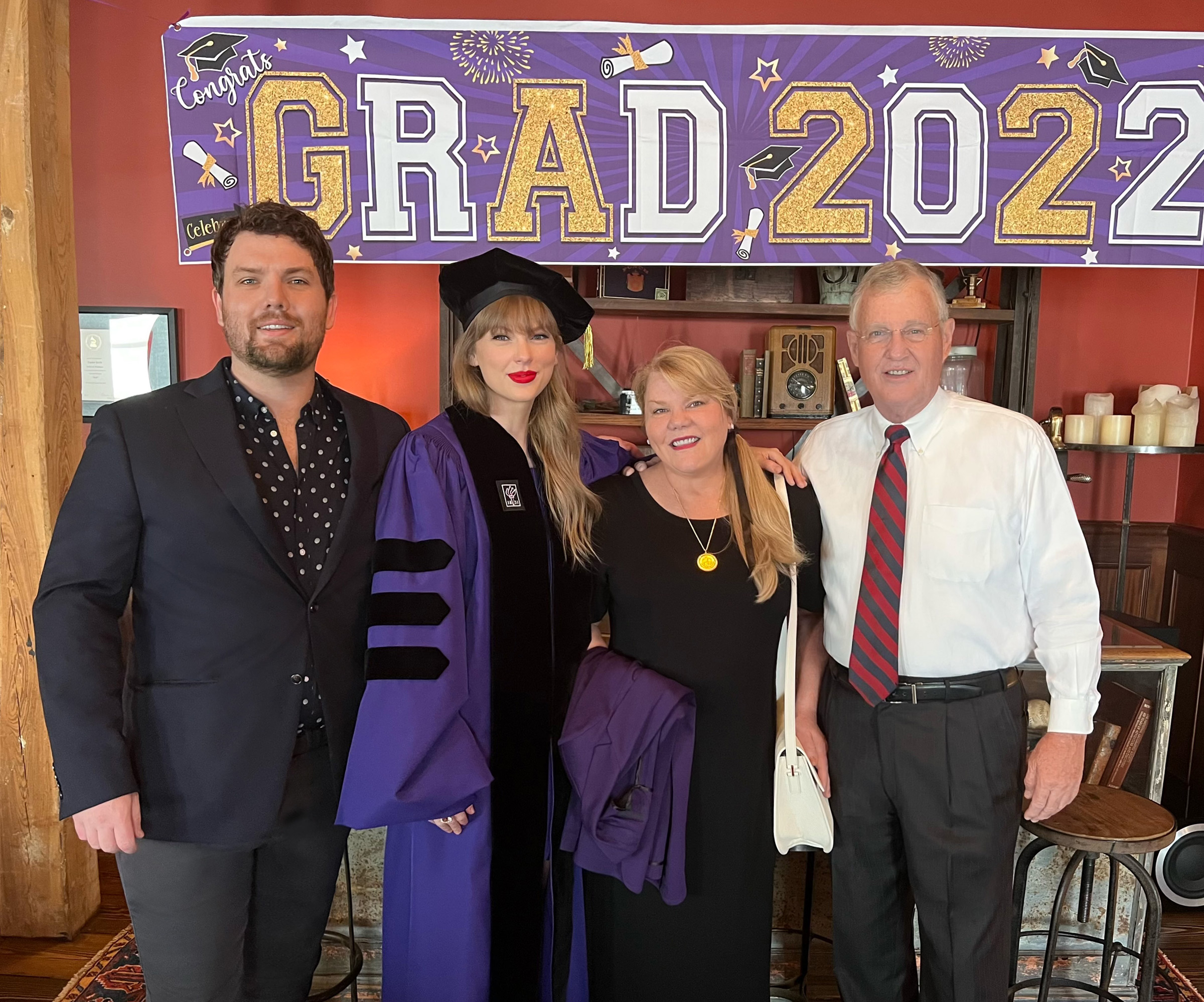
I find her connection with Kelce notable given her complicated background with public attention in her personal life. Swift softly responds: “This all started when Travis very adorably put me on blast on his podcast, which I thought was metal as hell.” Right after that, we hung together. We spent a lot of time together without anyone knowing, which I’m happy for since we got to know each other. We were dating when I went to that first game. Some say they spotted our first date at that game? For her, the main point is that there’s nothing to hide. ‘Public’ means I’ll see him do what he loves, we’re showing up for each other, other people are there and we don’t care, she says. “The opposite is true: you must work hard to hide your relationship. We’re proud of each other.”
Swift’s candor contributes to her female-dominated following base. The Eras Tour was part of “a three-part summer of feminine extravaganza” that included Gerwig’s Barbie and Beyoncé’s Renaissance Tour. “To make a fun, entertaining blast of a movie, with that commentary,” she says of Barbie, “I cannot imagine how hard that was, and Greta made it look so easy.” She calls Swift “Bruce Springsteen meets Loretta Lynn meets Bob Dylan.”
Swift praises Beyoncé, who struck a similar arrangement with AMC and attended Swift’s Los Angeles premiere; the following month, Swift attends her London premiere. Swift calls her the most precious gem—warm, open, and humorous. It’s amazing how she disrupts music industry norms. Her tour was often juxtaposed with Beyoncé’s, which is frustrating. “There were so many stadium tours this summer, but only me and Beyoncé were compared,” she explains. “Clearly it’s very profitable for the media and stan culture to pit two women against each other, even when the artists refuse to discuss it.”
Swift considers all three successes essential. If we have to speak stereotypically about the feminine and masculine, she argues, “women have been fed the message that what we naturally gravitate toward—” She gives examples: “Girlhood, feelings, love, breakups, analyzing those feelings, talking about them nonstop, glitter, sequins! We’ve been taught that things are frivolous compared to stereotypically gendered men’s interests, right?Right, I say. “What has existed since the beginning? A patriarchal society. Why is patriarchy so prevalent? Revenue flow, economy, money. In the most cynical way, profitable feminine ideas mean more female art. Very encouraging.”
Swift seems more relaxed in public given all the attention, but I wonder if that’s simply a coincidence. She nods. I’ve learned throughout the years that I don’t have time or energy to worry about little matters. It will be chaos outside the restaurant if I go out to eat. “I still want to go to dinner with my friends.” She seems thoughtful. “Life is short. Be adventurous. I’ll never get back the years I spent alone in my house. Now I trust more than six years ago.”
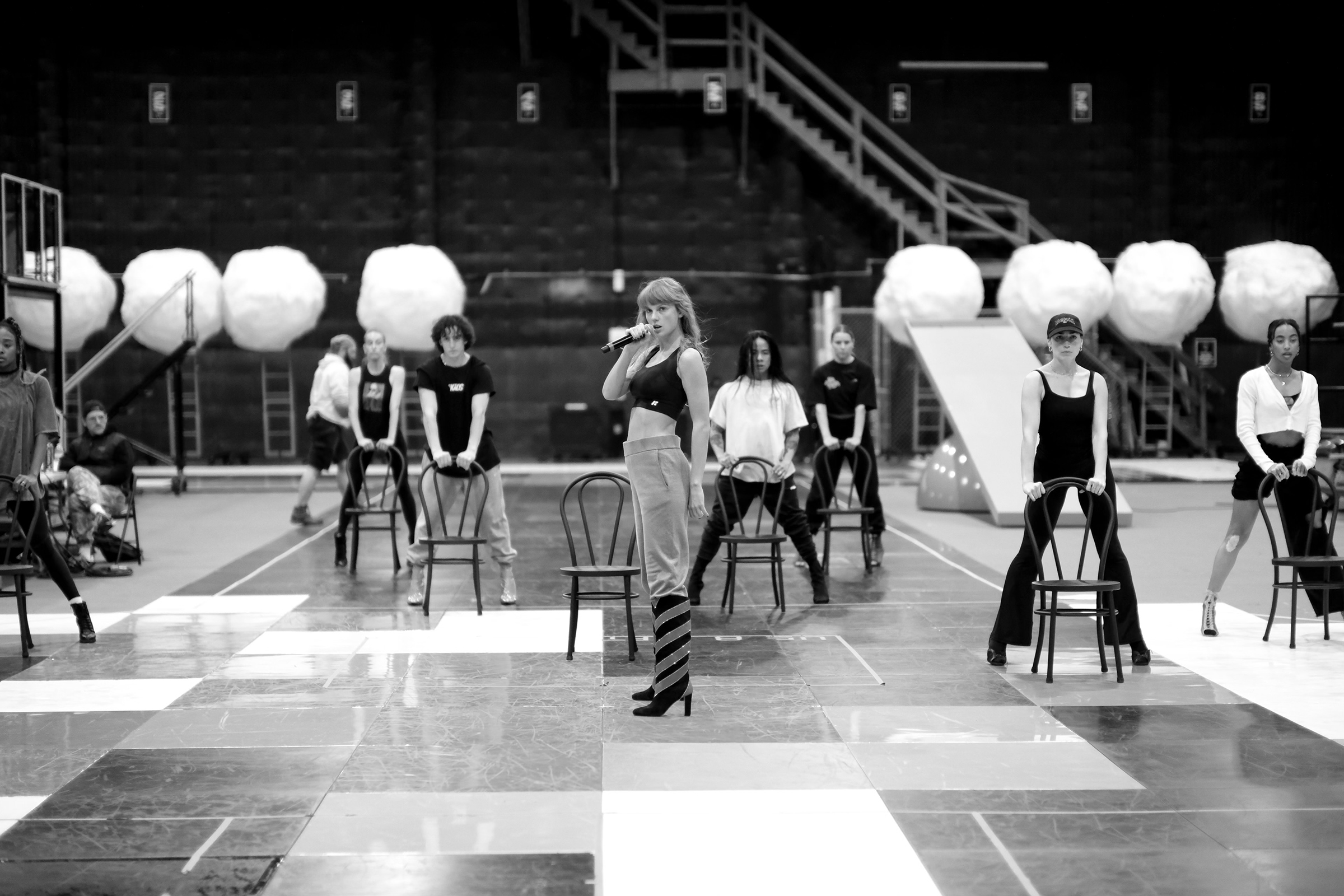
She’s having more fun. Swift sits in the same row as me, Madison, and McCall at her premiere, singing and dancing. We keep craning our necks to look at her, swapping thunderstruck looks: Isn’t this surreal? When the cameras capture the massive screens behind Swift onstage, it feels like a house of mirrors, with us watching her watch herself on a screen, which is showing Swift’s image on so many screens, the thousands of fans in the stadium, and us in this theater, with Swift in the middle. We’re captivated, unable to look away.
Swift and I have been talking at her apartment for so long that our coffees have gone cold and her cat Benjamin Button has come in, then left, bored. She discusses revisiting Reputation, the tour’s most volatile era. She laughs, “It’s a goth-punk moment of female rage at being gaslit by an entire social structure. “I think a lot of people see it and they’re just like, Sick snakes and strobe lights.” There will be “fire” vault recordings for Reputation. She views the rerecordings as a legendary quest. “I’m collecting horcruxes,” she says. “I collect infinity stones. Gandalf’s voice haunts me every time I publish. I consider it a film.”
For all the talk about eras, I think it’s interesting considering genres and how Swift has switched between them in her works. It began as a coming-of-age story about a young woman finding her footing and polishing her voice before a fickle audience. There were magnificent romances—tales of enchantment and desire, grief and disillusionment—that she dug for her songs and that the media reported with glee or schadenfreude, depending on the day. Her life has been influenced by emotional and professional betrayals with Shakespearean stakes and twists. Sometimes these stories turn into screwball comedy, such when a Seattle throng cheered so loudly it registered as an earthquake or when the local archdiocese projected messages congratulating her onto the 124-ft. The Redeemer statue. But Swift unites them.
She masters self-determination and storywriting. Shonda Rhimes, a plot twist expert, has known Swift since she was a teenager. “She controls narrative not only in her work, but in her life,” she adds. She felt like someone were shooting at her. It feels like she’s telling the story, thus no shots are needed.”
Swift’s story is about redemption, rising and falling—a hero’s journey. I don’t tell her that it didn’t always look that way from the outside—that when Reputation’s lead single “Look What You Made Me Do” reached No. 1 on the charts or the album sold 1.3 million copies in the first week, second only to 1989, she didn’t look like a career-killer. She looked like a rockstar mining her personal experience, as usual. I might say this.
Who am I to argue if that’s how she felt? She felt canceled. She felt like her career was stolen. She mourned losing something. Maybe this is the real Taylor Swift effect: She gives people, many of them women, especially girls, who have been conditioned to accept dismissal, gaslighting, and mistreatment from a society that treats their emotions as inconsequential, permission to believe their interior lives matter. Your heart breaking, whether from getting kicked off a tour, remembering a scarf in a drawer, or having someone else manage your life’s work, is a valid wound, and you’re not insane for being sad or wanting your story heard.
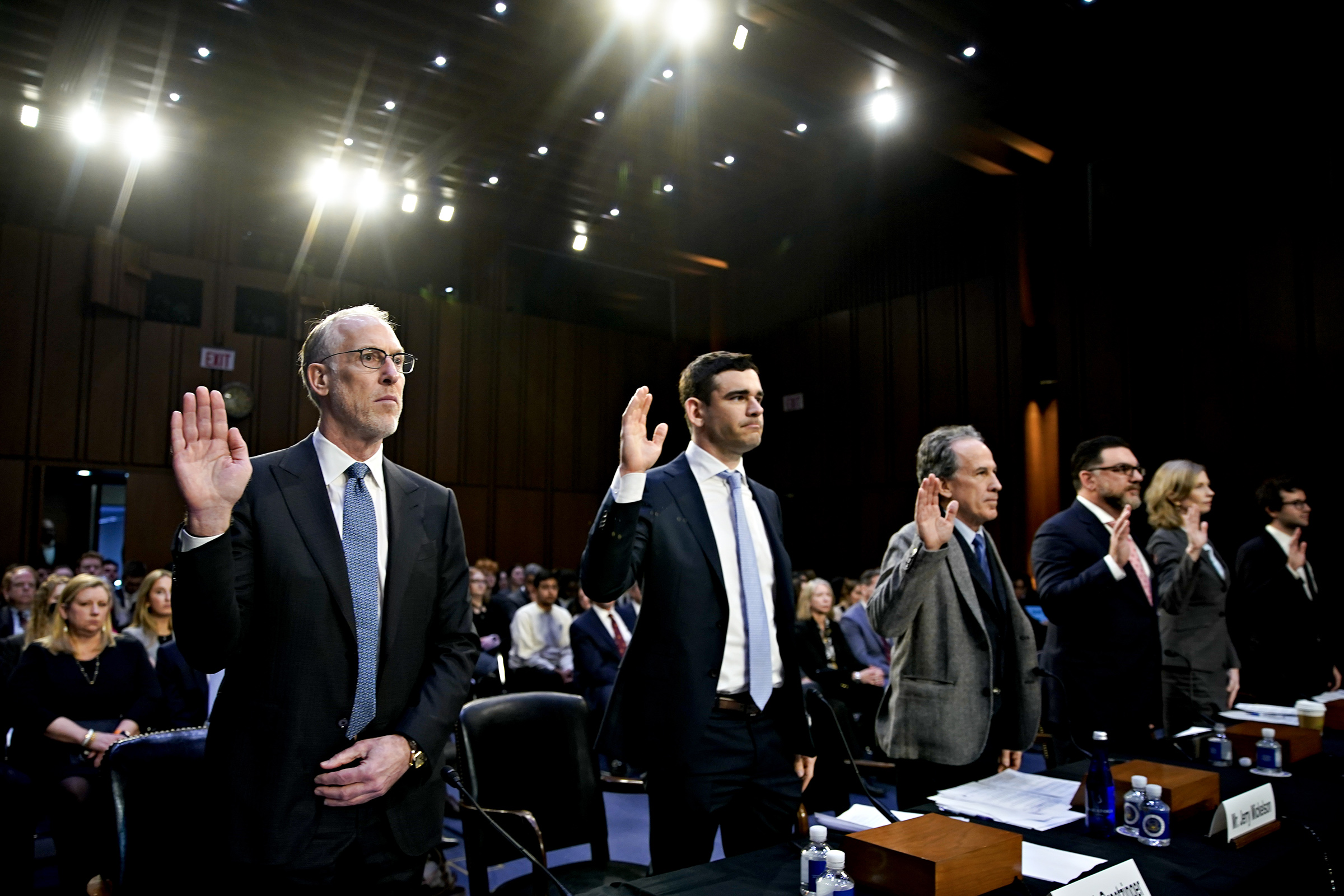
In the digital age, haven’t we all become selective autobiographers, curating our lives for our own audiences of any size, cutting away from the raw fabric of our lived experience to reveal the shape of the story we most want to tell, whether on our feeds or the world stage? I can’t blame her for being the best. She’s also admitted it. “No one wanted to play with me as a little kid/ So I’ve been scheming like a criminal ever since/ To make them love me and make it seem effortless/ This is the first time I’ve felt the need to confess/ And I swear I’m only cryptic and Machiavellian because I care,” she sang in the bridge of “Mastermind,” from last year’s Midnights.
She says she wrote that song after watching Phantom Thread, which spoiler-reveals a massive deception. Remember that last scene?She says. I wondered, wouldn’t a lyric about calculation be fun?She pauses. “It was thrown at me like a dagger, but now I take it as a compliment.”
A complement. I keep thinking about how Swift expertly told this story about redemption, how she lost it all and got it back, after I leave her house. Chesney says he gave her that gift years ago because she’s always told stories. “She was a writer with something to say,” he says. “You can’t fake that with clichés. You must live it and write it as authentically as possible.”
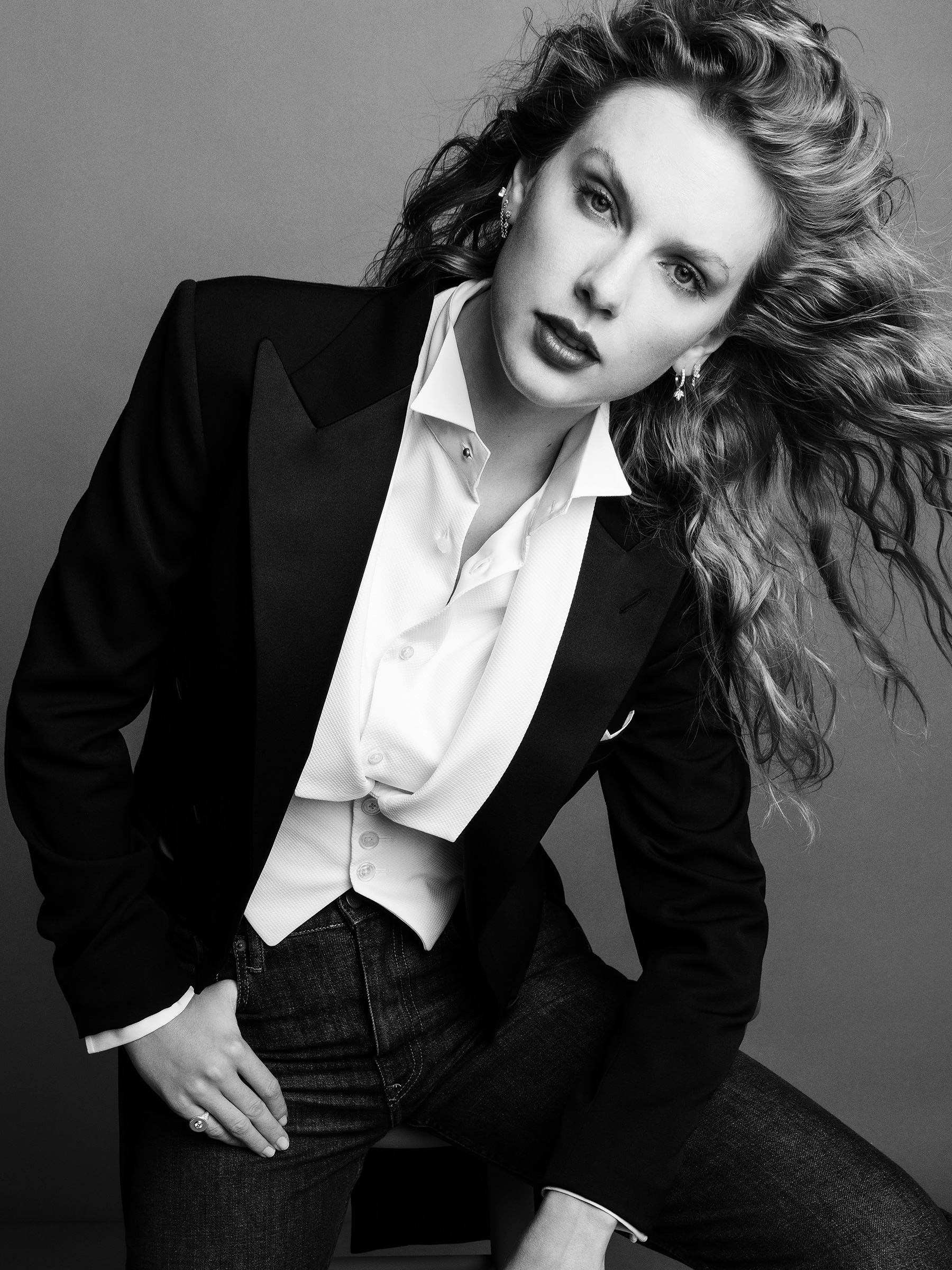
She must have anticipated that I would interpret her references as Easter eggs. She grasped the lesson in telling me about Chesney—the power of generosity and how a shattering setback can lead to a tremendous and unanticipated gift. Her “Are you not entertained?”“Surely we both knew it was a quote from Gladiator, a film about a hero who falls from grace, is forced to perform blood sport for the audience, and rises again after humiliation and debasement. Before I left, she showed me the message from Paul McCartney hanging in her toilet, which read: “Take these broken wings and learn to fly.” —Reported by Leslie Dickstein and Megan McCluskey